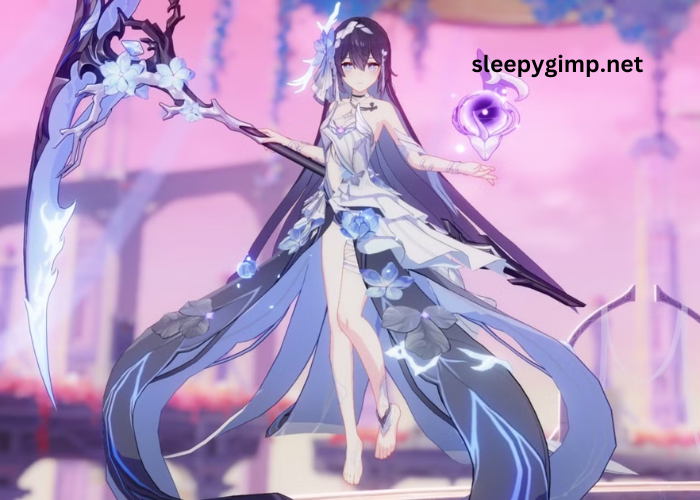The concept of power has always fascinated societies throughout history, and with it, the idea of the ruler—someone who holds dominion over people and lands. The word “Herrscher” itself, translated from German to mean “ruler,” suggests a figure of authority, control, and often reverence.
But the term doesn’t simply signify someone who holds power; it has also evolved to encompass divine connotations, with rulers sometimes viewed as gods. This transformation—”from ruler to god”—marks a significant shift in how societies understand authority and power.
In this post, we’ll explore the history of the term “Herrscher” and how the role of the ruler evolved over time from a human figure to one imbued with divine qualities. Through historical and cultural lenses, we will investigate how this transition occurred and what it reveals about the societies that embraced this evolution.
Key Points:
- The term “Herrscher” originally signified a ruler or sovereign.
- Over time, rulers began to be associated with divine or god-like powers.
- This transition reflects the evolution of political and religious thought throughout history.
What Is the Original Meaning of Herrscher?
The term “Herrscher” comes from the German language, where it means “ruler,” “sovereign,” or “lord.” Historically, this word was used to describe kings, emperors, or any leader who held supreme power over a kingdom or territory. The ruler, in this context, was seen as someone with earthly authority, granted either through inheritance, conquest, or divine appointment.
In early societies, the ruler’s power was often absolute, and their ability to make decisions that affected the lives of their subjects was unmatched. The term “Herrscher” didn’t imply any divine association initially; it referred purely to a political leader who governed through laws, decrees, and military force.
For example, during the Middle Ages, kings and emperors in Europe were often viewed as divinely appointed but not necessarily as gods themselves. The belief in the “Divine Right of Kings” played a role in establishing the ruler’s sacred authority but didn’t elevate them to the status of a god.
| Period | Meaning of Herrscher | Ruler’s Status |
| Ancient Times | Earthly Ruler | Political Leader |
| Middle Ages | Divine Appointed Ruler | Sacred Authority |
| Renaissance | Ruler with God-like Traits | Elevated Power |
How Did Rulers Begin to Be Viewed as Divine?
As civilizations evolved, the notion of the ruler being simply a political figure began to change. A growing belief in the connection between political power and divine power arose, especially in empires where religion and governance were intertwined. The idea that rulers were chosen by gods or even divine beings themselves started to gain traction.
For example, in Ancient Egypt, Pharaohs were not just kings; they were considered living gods, embodying both political and spiritual authority. The Pharaoh was the bridge between the gods and the people, and their word was law. This concept of divine kingship became widespread in many ancient civilizations, where rulers were seen as representatives of the gods on Earth. The belief that the ruler was an extension of divine power, or even a god in their own right, spread throughout cultures such as Mesopotamia, Egypt, and the Roman Empire.
Similarly, the concept of the emperor in Japan was deeply connected with divinity. The Japanese Emperor was regarded as the direct descendant of the sun goddess Amaterasu, making them not only a political leader but also a living deity. This divine status elevated the emperor’s power, making them central to both political and religious life in Japan.
The shift from ruler to god highlights the role of religion in consolidating political power. It was no longer enough for a ruler to simply control territory—they also needed to be seen as possessing divine favor to legitimize their rule.
| Civilization | Ruler’s Divine Status | Religious Influence |
| Ancient Egypt | Pharaoh as a living god | Godly authority and rituals |
| Roman Empire | Emperor as a god | State religion worships emperor |
| Japan | Emperor as divine | Descendant of sun goddess |
How Did the Concept of Herrscher Change Over Time?
As the centuries passed, the idea of a ruler being a god shifted. During the Enlightenment period, many thinkers began to challenge the divine right of kings, asserting that rulers should be accountable to their people and not derive their authority from a god. The French Revolution, for instance, rejected the notion of a divine ruler and replaced it with the idea of a republic—a government formed by the people, for the people.
This intellectual shift led to the gradual decline of the divine status of rulers, although it didn’t disappear entirely. In some regions, rulers continued to be associated with divine or semi-divine power, but their god-like status was now more symbolic than actual. For example, in the Russian Empire, Tsar Nicholas II was still referred to as “God’s Anointed” but was under increasing pressure from political reforms and social change.
In modern times, the idea of rulers as gods has mostly faded, and most leaders are viewed as human beings who are accountable to the people, although some symbolic rituals and titles still remain. Nevertheless, the historical evolution of power—from ruler to god—has left a lasting legacy in how power and authority are understood across different cultures.
| Era | Shift in Ruler’s Status | Changes in Power Dynamics |
| Enlightenment | Diminished divine status | Rise of republics and democracy |
| Russian Empire | Symbolic divinity | Monarchs with ceremonial roles |
| Modern Times | Humanization of rulers | Democratic accountability |
What Does the Evolution of Herrscher Tell Us About Power?
The evolution of the concept of “Herrscher” from a political leader to a god-like figure and then back to a more humanized figure tells us a great deal about how societies view and understand power. Initially, power was seen as divinely ordained, but as societies advanced, they began to question and challenge this view. The shift reflects the changing relationship between rulers and their subjects, from absolute authority to a more accountable, people-centered form of governance.
What’s important to note is that despite the decline of rulers being viewed as gods, the symbolism surrounding their authority hasn’t entirely disappeared. Even today, rulers are often associated with power that can seem almost untouchable. For example, in some monarchies and political systems, leaders are still treated with reverence and awe, although they may not hold actual divine status.
Note: The way we view rulers and their power today is shaped by centuries of cultural and political evolution.
Conclusion
The journey from “ruler” to “god” and back again is not just an intellectual exercise—it’s a reflection of how societies evolve in their understanding of authority and governance. The term “Herrscher” encapsulates this journey, highlighting the complex interplay between politics, religion, and culture. As rulers shifted from being seen as divine beings to political figures accountable to the people, they navigated an ever-changing landscape of power and legitimacy.
The evolution of “Herrscher” reflects not only the rise and fall of individual rulers but also the broader societal values and ideologies that influenced how power was wielded. As we move forward into the modern era, it’s essential to remember the lessons from history: that power, no matter how great, is always subject to change, and those who wield it must be accountable to the people they govern.
FAQ’s
- What does the term “Herrscher” mean?
“Herrscher” is a German word that translates to “ruler” or “sovereign.” It denotes someone with supreme authority over a territory or group of people. - How did rulers transition from earthly to god-like figures?
Over time, rulers in ancient civilizations began to be viewed as divine or god-like, often to legitimize their authority and strengthen their control over their subjects. - How did the Enlightenment affect the concept of rulers as gods?
The Enlightenment led to a shift in political thought, challenging the idea that rulers had divine authority and advocating for democratic principles and accountability. - Why do some rulers still hold symbolic divine status today?
While rulers are no longer viewed as gods, symbolic titles and rituals persist in some cultures, maintaining a reverence for authority and tradition. - What does the evolution of Herrscher tell us about power?
The evolution of “Herrscher” shows how power dynamics change over time, reflecting shifting values about governance, legitimacy, and the relationship between rulers and the people.





